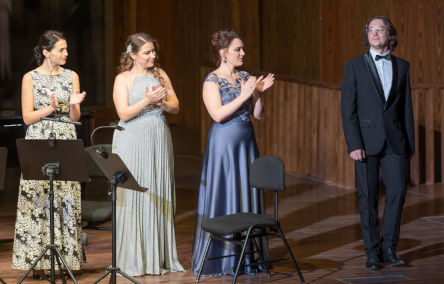
Yiddish Concert in Nizhny Novgorod
Yiddish Concert in Nizhny Novgorod
On November 23, 2023, the Opera and Ballet Theater of Nizhny Novgorod, one of the largest and prominent cities in Russia, held a Jewish-themed concert called Menorah Music. Three opera soloists, Yulia Sitnikova, Anastasia Jilas and Svetlana Polzikova, performed a number of Yiddish songs composed by Alexander Krein, Moses (Mieczysław) Weinberg and Yoel Engel.
The lyrics’ authors included famous Yiddish poets, such as Izi Kharik, Aaron Kushnirov and Yitskhok Leybush Peretz. The song “Close your little eyes” (“Makh tsu di eygelekh”) performed by Anastasia Jilas was sung as an encore. Its tragically murdered authors, the poet Isaiah Spiegel and the composer David Beigelman, wrote it in the Lodz ghetto after the children imprisoned there were deported to a death camp.
To demonstrate to the audience the global significance of Jewish culture in general and Yiddish culture in particular, the concert program deliberately included works by non-Jewish composers written on Jewish themes: Robert Schumann, Sergei Prokofiev and Maurice Ravel.
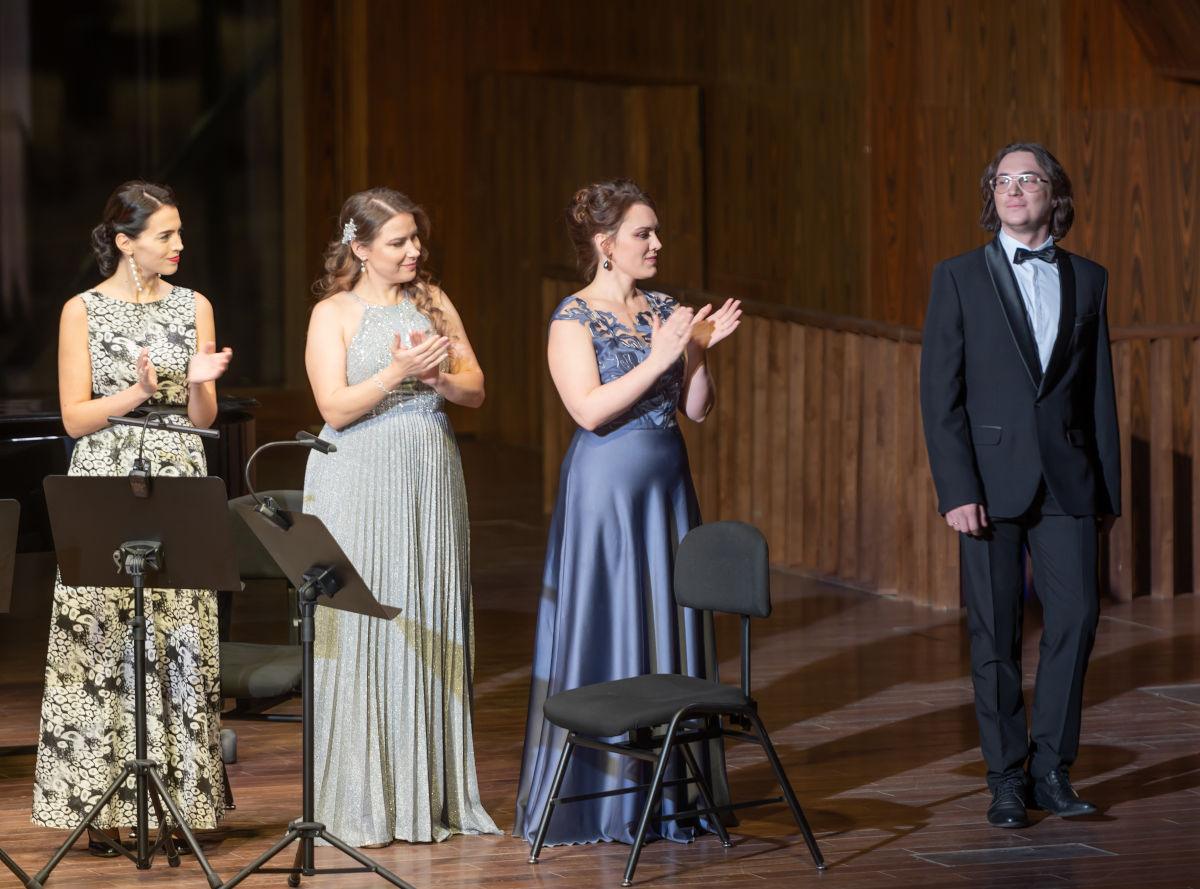
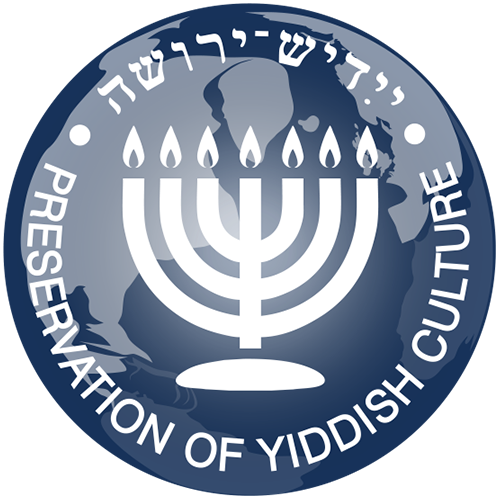

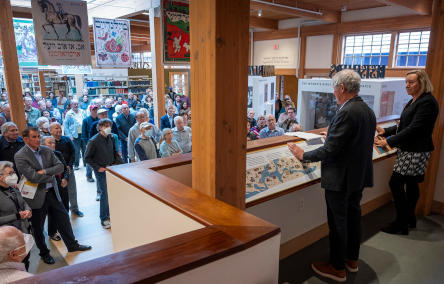
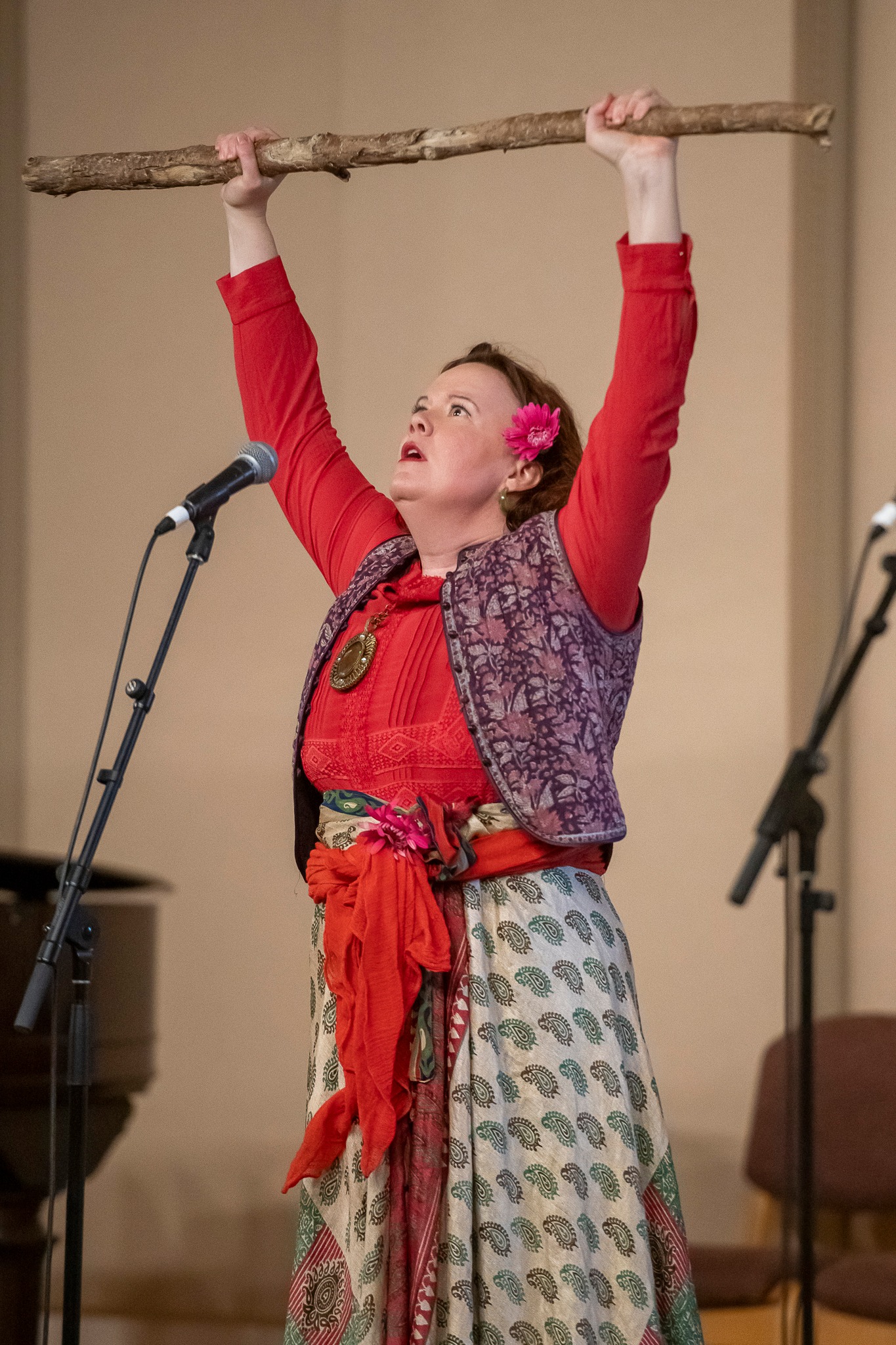
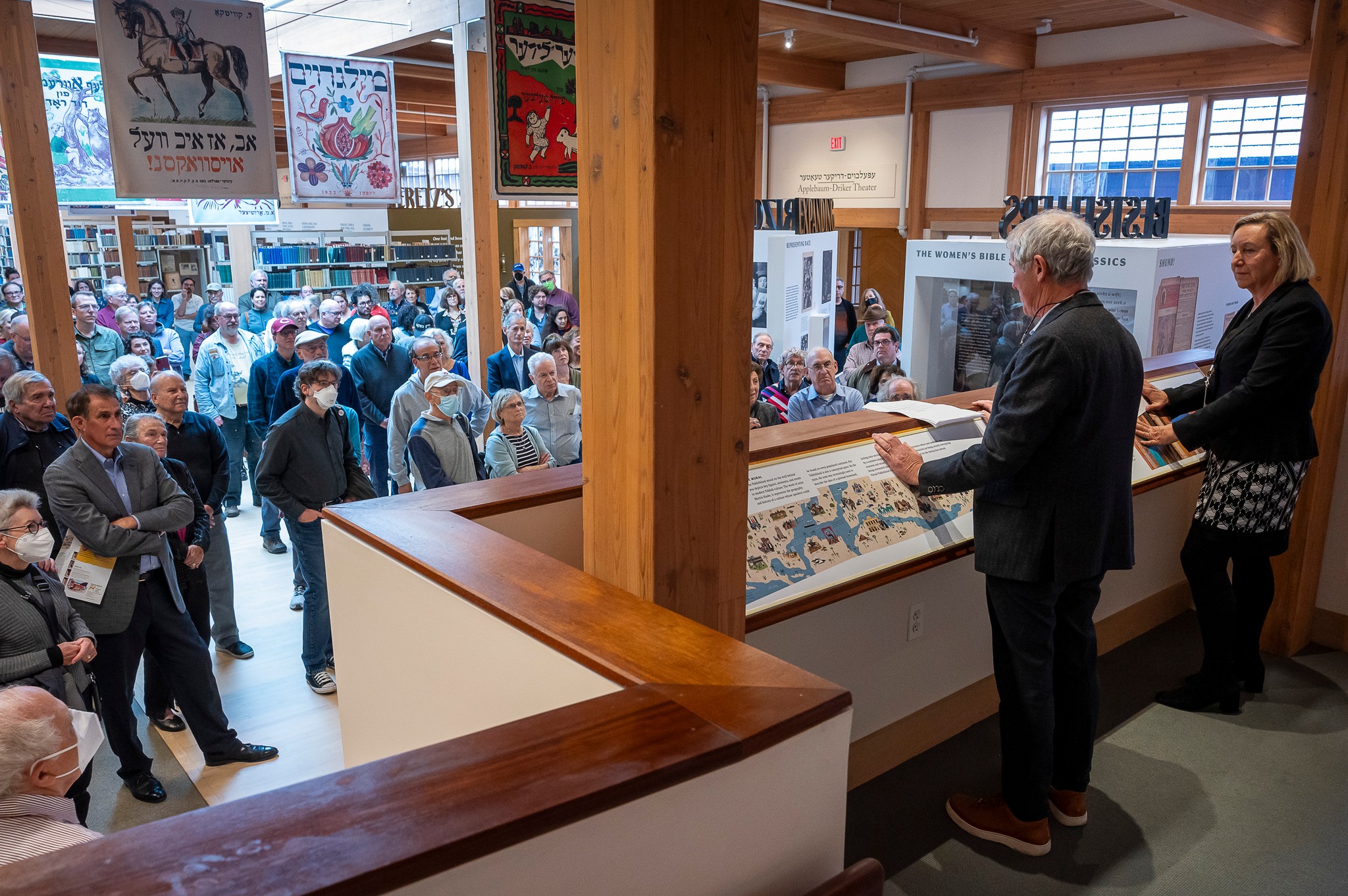
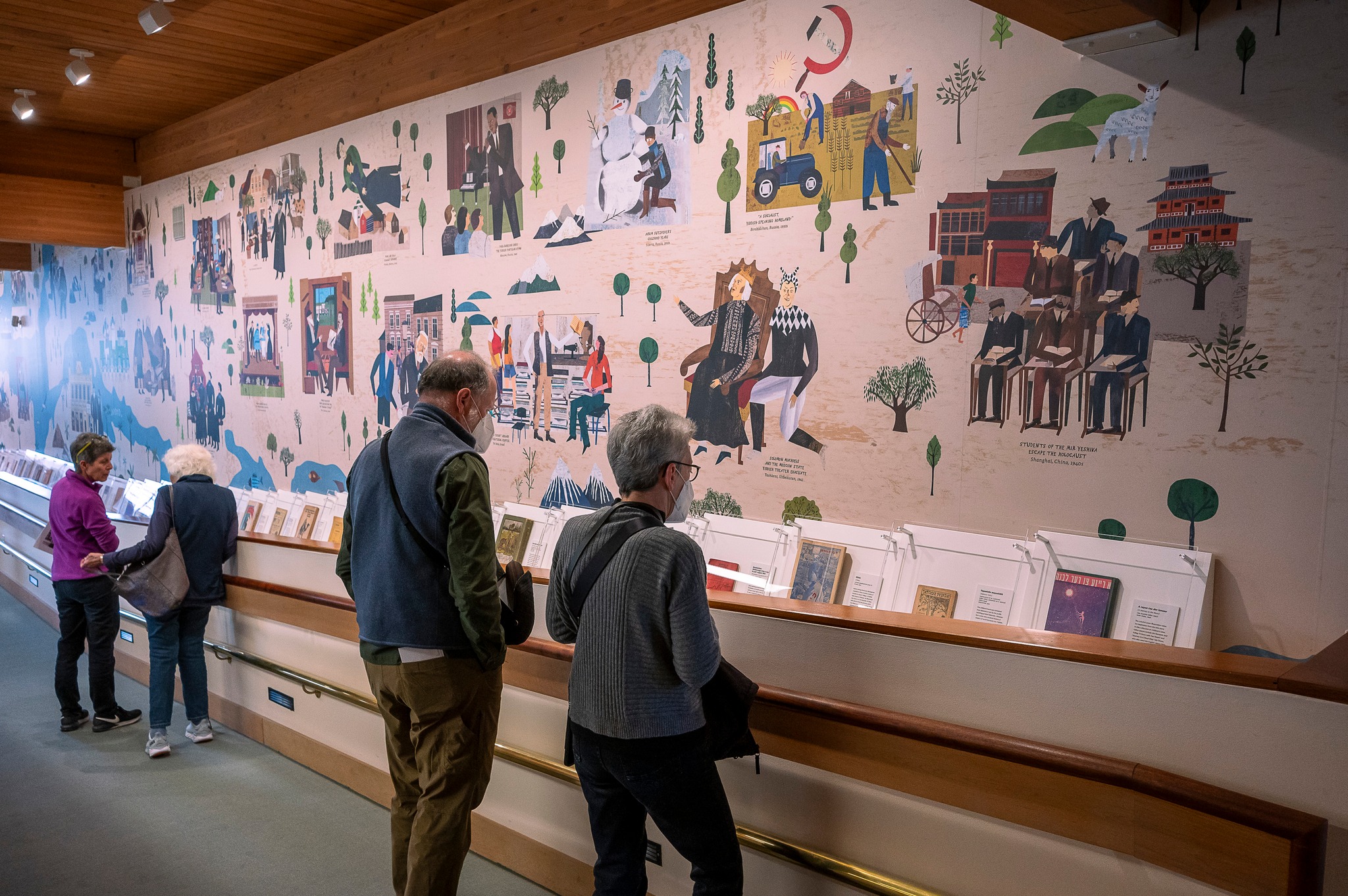



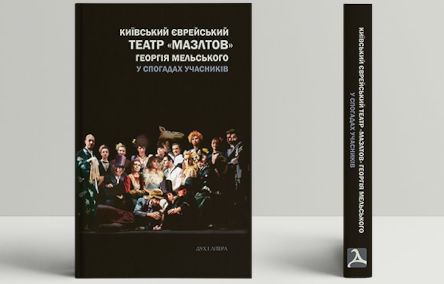
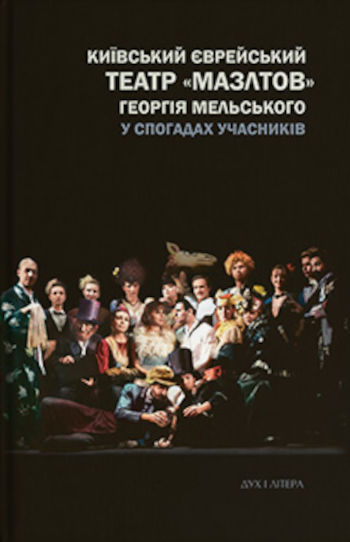 The Kiev publishing house Duh i Litera (“Spirit and Letter”) published a book in Ukrainian titled “Georgy Melsky’s Kievan Jewish theater Mazltov in the memoirs of its participants.” The book’s editor, Svetlana Simakova, compiled the memories of people who participated in this professional stage collective. This theater performed in Ukraine’s capital in Yiddish from 1988 to 1995. Its first production was Sholem Aleichem’s play The Bloody Hoax known in its stage version as It’s Hard to be a Jew. The book is illustrated with photographs of actors, stage scenes and posters.
The Kiev publishing house Duh i Litera (“Spirit and Letter”) published a book in Ukrainian titled “Georgy Melsky’s Kievan Jewish theater Mazltov in the memoirs of its participants.” The book’s editor, Svetlana Simakova, compiled the memories of people who participated in this professional stage collective. This theater performed in Ukraine’s capital in Yiddish from 1988 to 1995. Its first production was Sholem Aleichem’s play The Bloody Hoax known in its stage version as It’s Hard to be a Jew. The book is illustrated with photographs of actors, stage scenes and posters.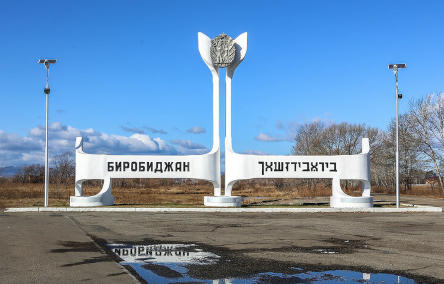
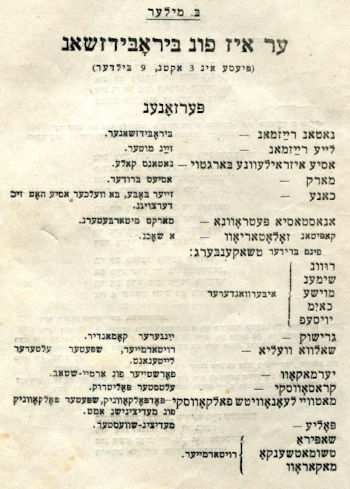 On October 13, 2023, the state TV channel Bira in Birobidzhan, Russia, showed an episode of the weekly program Yiddishkait, in which Yoel Matveyev, a Yiddish writer, poet and literary translator based in St. Petersburg, spoke about women’s poetry in Yiddish from the 16th century to the present day. His recent Yiddish publication in the newspaper Birobidzhaner Shtern was devoted to this topic as well. During the TV program, Alexandra Glebovskaya and Olga Anikina, who also reside in St. Petersburg, read Anna Margolin’s poems in the Yiddish original and in their Russian translations.
On October 13, 2023, the state TV channel Bira in Birobidzhan, Russia, showed an episode of the weekly program Yiddishkait, in which Yoel Matveyev, a Yiddish writer, poet and literary translator based in St. Petersburg, spoke about women’s poetry in Yiddish from the 16th century to the present day. His recent Yiddish publication in the newspaper Birobidzhaner Shtern was devoted to this topic as well. During the TV program, Alexandra Glebovskaya and Olga Anikina, who also reside in St. Petersburg, read Anna Margolin’s poems in the Yiddish original and in their Russian translations.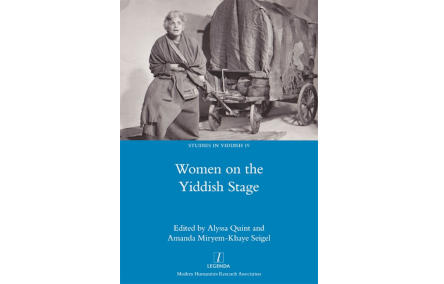
 The recent book Women on the Yiddish Stage, edited by Alyssa Quint and Amanda Miryem-Khaye Seigel, covers the history of women’s integration into public Yiddish theatrical performances, starting from the 1870s. Gradually, actresses had become leading stage figures who revolutionized modern Jewish culture. Historically, women were barred from public performances in traditional Jewish communities, while Yiddish-speaking men performed for centuries as singers and entertainers.
Women on the Yiddish Stage presents a diverse array of scholarly essays that challenge the existing historical accounts of modern Yiddish theater. The book highlights many pioneering personalities and maps sources in this area of Yiddish and Jewish history.
The recent book Women on the Yiddish Stage, edited by Alyssa Quint and Amanda Miryem-Khaye Seigel, covers the history of women’s integration into public Yiddish theatrical performances, starting from the 1870s. Gradually, actresses had become leading stage figures who revolutionized modern Jewish culture. Historically, women were barred from public performances in traditional Jewish communities, while Yiddish-speaking men performed for centuries as singers and entertainers.
Women on the Yiddish Stage presents a diverse array of scholarly essays that challenge the existing historical accounts of modern Yiddish theater. The book highlights many pioneering personalities and maps sources in this area of Yiddish and Jewish history.